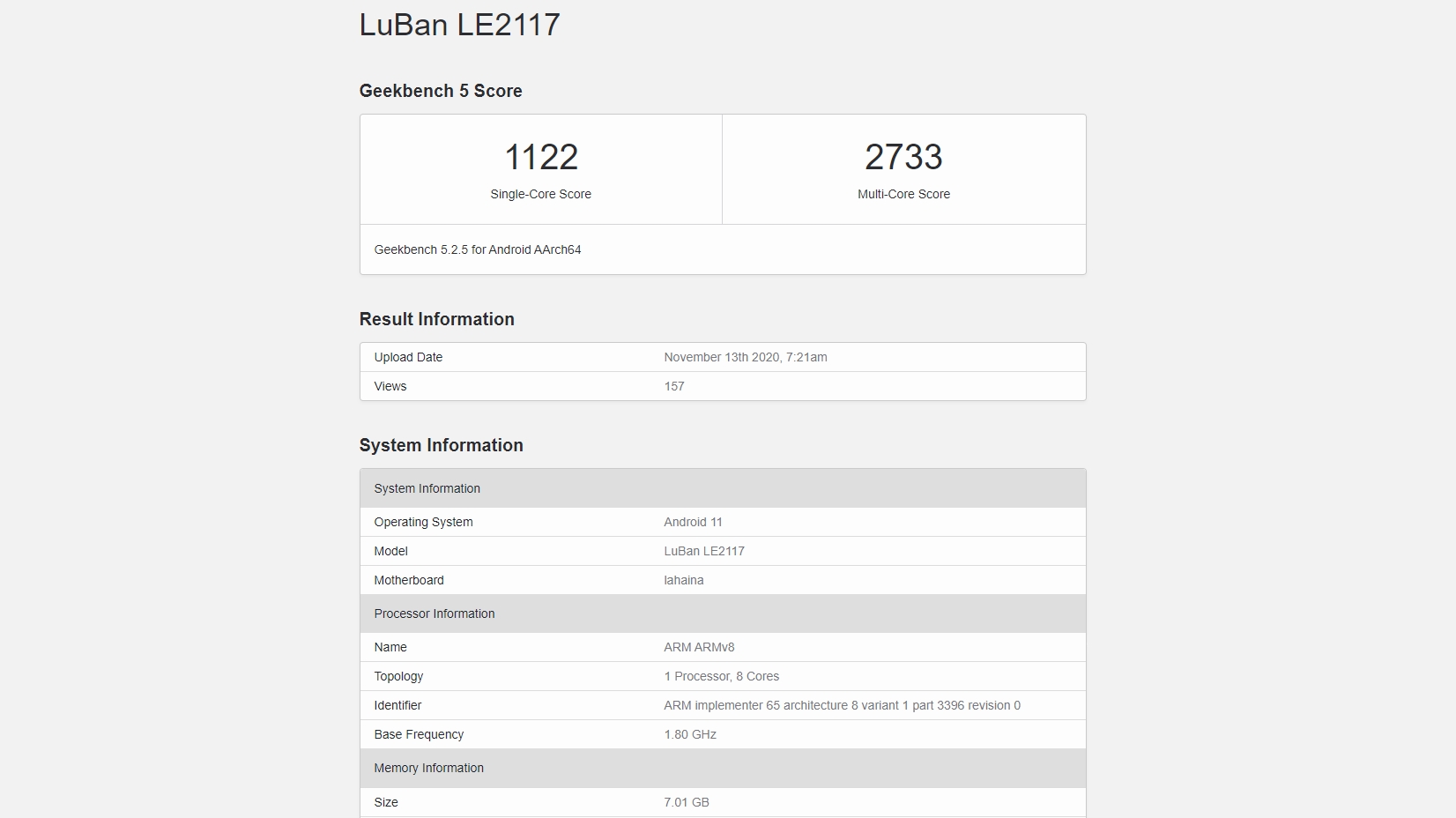OnePlus 9 Pro benchmark points to a top-end chipset and disappointing RAM
The OnePlus 9 Pro is likely to be one of the most powerful phones of early next year, but a benchmark suggests that while its chipset probably won’t disappoint, its RAM might, at least slightly.
A Geekbench listing for a device with the name ‘LuBan LE2117’ has been spotted by GizmoChina, and the second part of that name is a model number that’s previously been linked to the OnePlus 9 Pro.
The listing mentions a Qualcomm Snapdragon 875 chipset, which isn’t currently used in any phones but is likely to power a large number of Android flagships next year, and is exactly the chipset we expect for the OnePlus 9 range.
- Check out the best OnePlus phones
- Read our full OnePlus Nord review
- The Samsung Galaxy S21 is also expected in early 2021

So far so good, but there are some concerns. For one thing, the RAM is only listed as 8GB. That isn’t totally surprising given that the OnePlus 8 Pro and OnePlus 8T both come in 8GB configurations, but they also both come in 12GB versions, and while the OnePlus 9 Pro surely will as well, it’s arguably about time that became the standard, especially with some phones now offering 16GB.
The other potential issue is the scores achieved by the OnePlus 9 Pro on this benchmark. It has a single-core score of 1,122, which is very good – it beats any current Android device, though still sits below the iPhone 12 range. But its multi-core score of 2,733 is actually lower than a few Android phones, including the OnePlus 8 range.
That said, we wouldn’t worry too much about this, as assuming the benchmark is even genuine (which there’s always a chance it isn’t), it will have been run on non-final hardware. The OnePlus 9 and OnePlus 9 Pro aren’t likely to land until around April, so the company has plenty of time to keep tweaking them.
For what it’s worth, GizmoChina notes that a Weibo user by the name of ‘@肥威’ dug deeper into the benchmark, revealing that the chipset has four cores clocked at 1.80Ghz, three at 2.42GHz, and a prime core clocked at 2.84Ghz.
That speedy prime core is probably responsible for the high single-core result, so we just hope the other cores hold up by the time the phone is finished.
- Get the best of TechRadar in your inbox every day: sign up for our newsletter
Via PocketNow


No comments